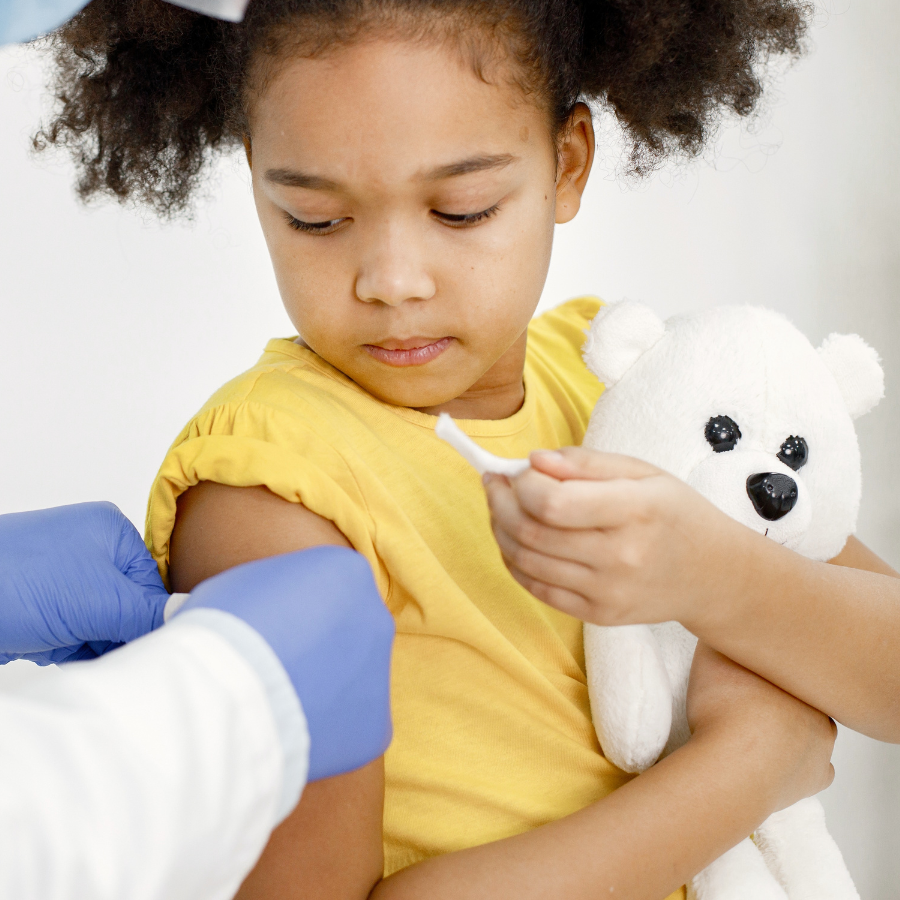After multiple delays, very young children are finally eligible for COVID-19 vaccination. In mid-June, the Food and Drug Administration (FDA) granted emergency use authorization (EUA) to Pfizer’s COVID-19 vaccine for children ages 6 months to 5 years, as well as to Moderna’s vaccine for kids ages 6 months to 6 years. The Centers for Disease Control and Prevention (CDC) soon after recommended the vaccines, which are now available.
Understandably, parents of small children are hesitant to get their children vaccinated without knowing the risks and benefits.
Both vaccines are safe and effective
The Moderna vaccine primary series for children 6 months through 5 years old is administered in two 25-microgram doses given four to eight weeks apart. The shots were about 40–50% effective at preventing milder Omicron SARS-CoV-2 infections in young children. Moderna expects children in this age group to be offered a booster dose at some point in time.
The Pfizer vaccine primary series for children 6 months to 4 years old is administered in three 3-microgram doses. The first and second doses are separated by three to eight weeks and the second and third doses are separated by at least eight weeks. Three doses of the Pfizer vaccine were shown to be 80% effective in preventing symptomatic COVID-19.
Both the Moderna and Pfizer vaccines were shown to have similar side effects, which included pain at the injection site, irritability, drowsiness and fever.
Here are some common questions, with answers provided by the Kent County Health Department:
- Is it a problem for my child to receive the COVID-19 vaccine at the same time as other vaccines?
- No, children and teens may get a COVID-19 vaccine and other vaccines at the same time. Because children may experience pain at the site where the shot is given, however, you should think about the number of shots you want your child to have at one time.
- What kind of side effects should I worry about after my child gets the vaccine?
- Any vaccine can cause side effects. These are usually minor (for example, a sore arm or low-grade fever) and go away within a few days. The COVID-19 vaccine is no different. If your child has any of the following after getting their vaccine, however, you should call or visit a doctor:
- Breathing fast or having trouble breathing
- Chest Pain
- A fast or irregular heartbeat
- Fainting
- A high fever with spasms or jerky movements (seizures)
- A swollen tongue or throat
- A rash or hives on their body
- Any vaccine can cause side effects. These are usually minor (for example, a sore arm or low-grade fever) and go away within a few days. The COVID-19 vaccine is no different. If your child has any of the following after getting their vaccine, however, you should call or visit a doctor:
- Should my child get the vaccine if they have allergies?
- Children with an allergy to food, latex or things in the environment (pollen, pets, bug bites, etc.) can get the COVID-19 vaccine. Serious allergic reactions to the COVID-19 vaccine have been very rare, especially among children.
- Will my child act any differently after getting the vaccine?
- Your child will likely complain that their arm hurts where the shot was given. They may also feel tired, not want to eat and be more irritable and cry more than usual. This shouldn’t last longer than a day.
- Why should my child get the COVID-19 vaccine?
- Vaccinating children protects them when participating in childcare, school, and other activities. It’s hard to predict how a child’s body will respond if they are infected with COVID-19. Most kids will do well, but some get very sick and need to visit the hospital. Getting the vaccine is the best way to help prevent this.
- What’s the difference between the two vaccines for kids under 5 years old?
- Both vaccines have been proven to be safe and effective at preventing symptomatic COVID-19 infection. The main difference is that the Pfizer vaccine is 3 doses and the Moderna vaccine is 2 doses. The most important choice is the one to have your child vaccinated.
- Will the COVID-19 vaccine affect my child if they have diabetes or sickle cell disease?
- There is no evidence that the COVID-19 vaccine negatively impacts children with diabetes or sickle cell disease. In fact, it is especially important for children with these conditions to be vaccinated as they are more likely to get severe COVID-19 if they are infected.
- My child is 4 years old. Should I wait until they are 5 to get vaccinated with the vaccine for 5-11 year olds?
- It takes some time to be considered fully protected after getting vaccinated (6 weeks for the Moderna vaccine and 13 weeks for the Pfizer vaccine). So that your child is fully protected as soon as possible, it is best not to wait and to get them vaccinated now.
You may still have more questions, so we encourage you to speak to your healthcare provider/pediatrician to determine what is the most appropriate action for your family.
Need to get your child vaccinated?
GRAAHI is offering multiple free, local vaccine clinics. To see the dates, locations and make an appointment, go to graahi.com/getvaccinated.
